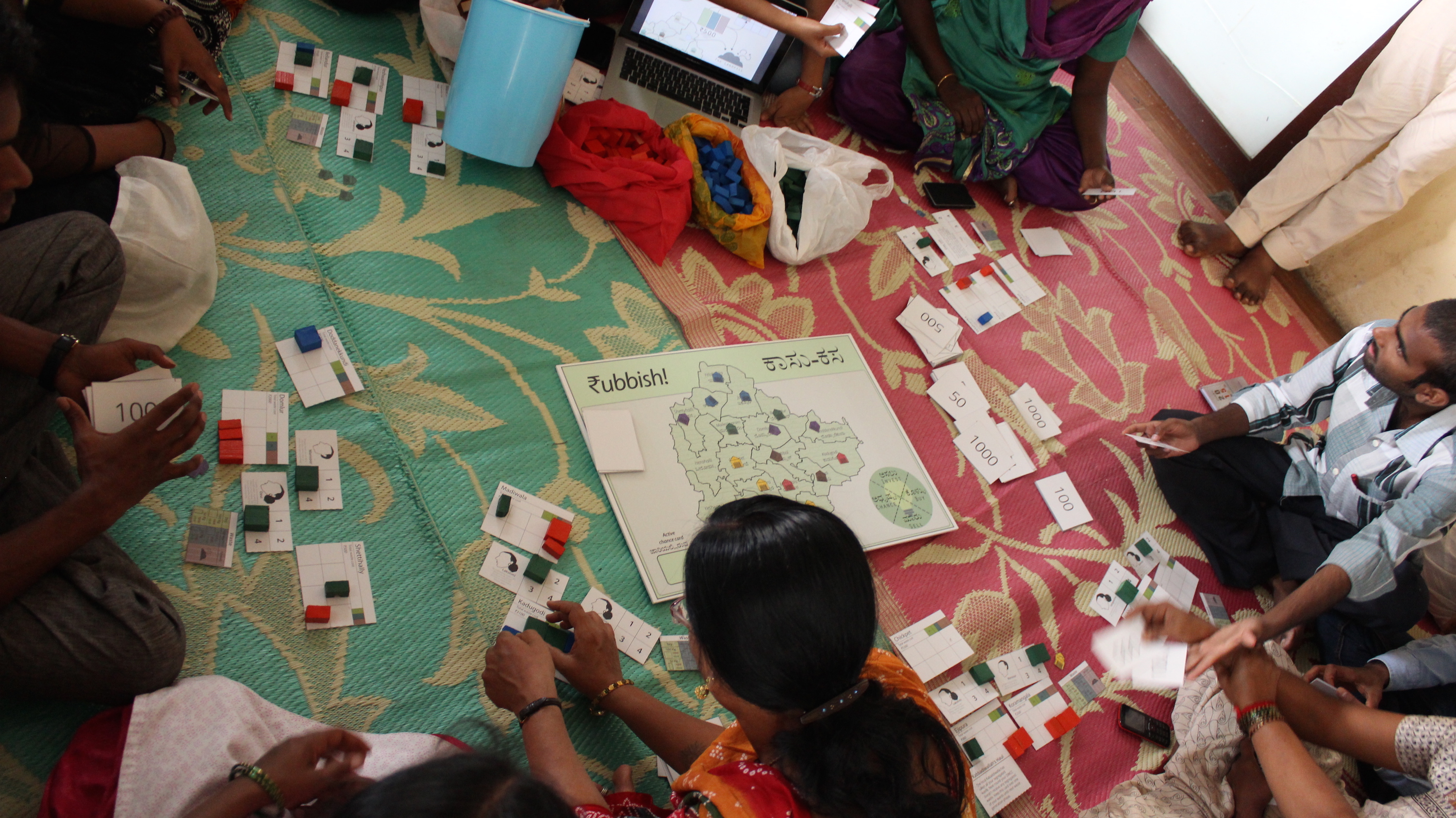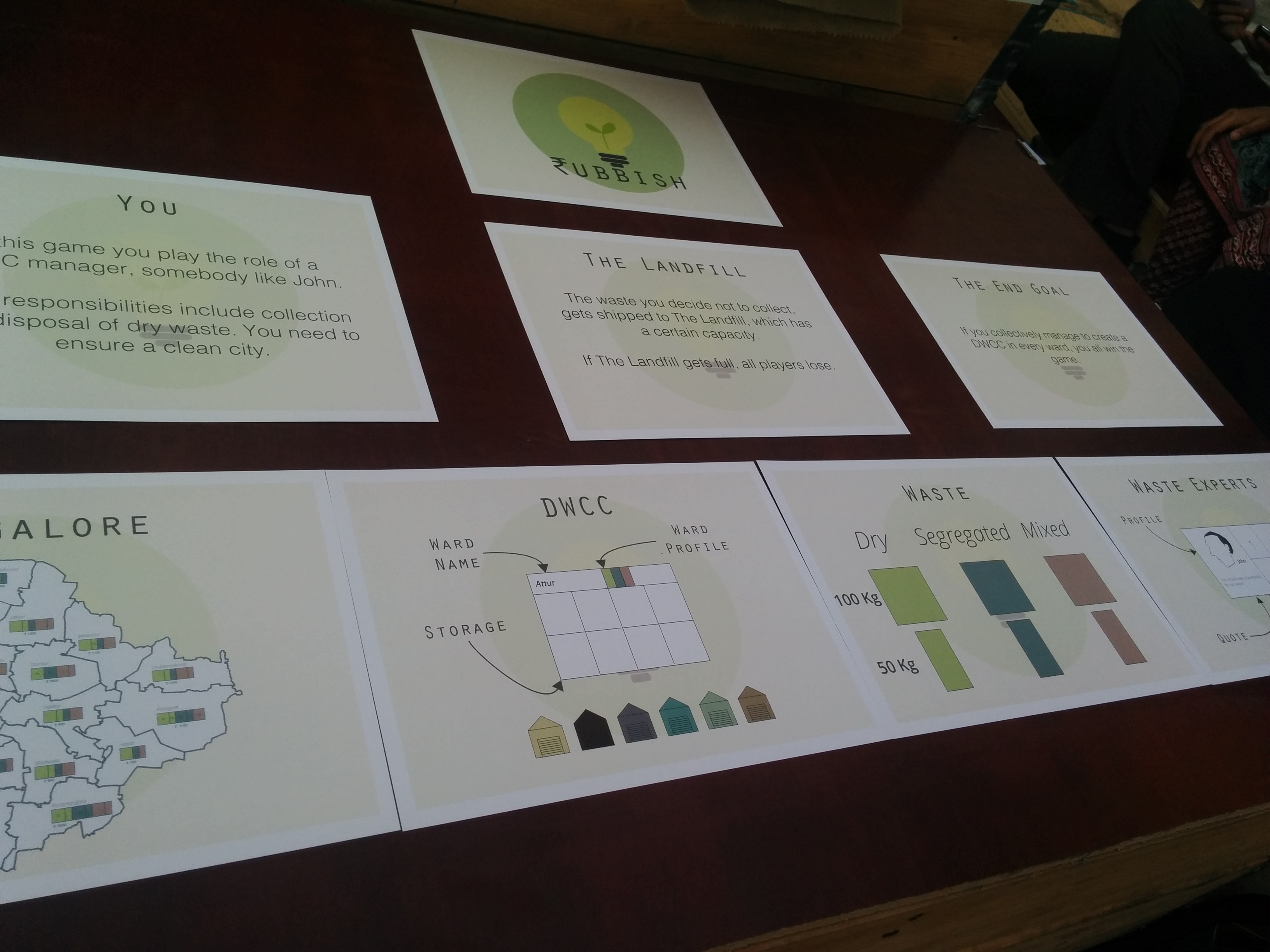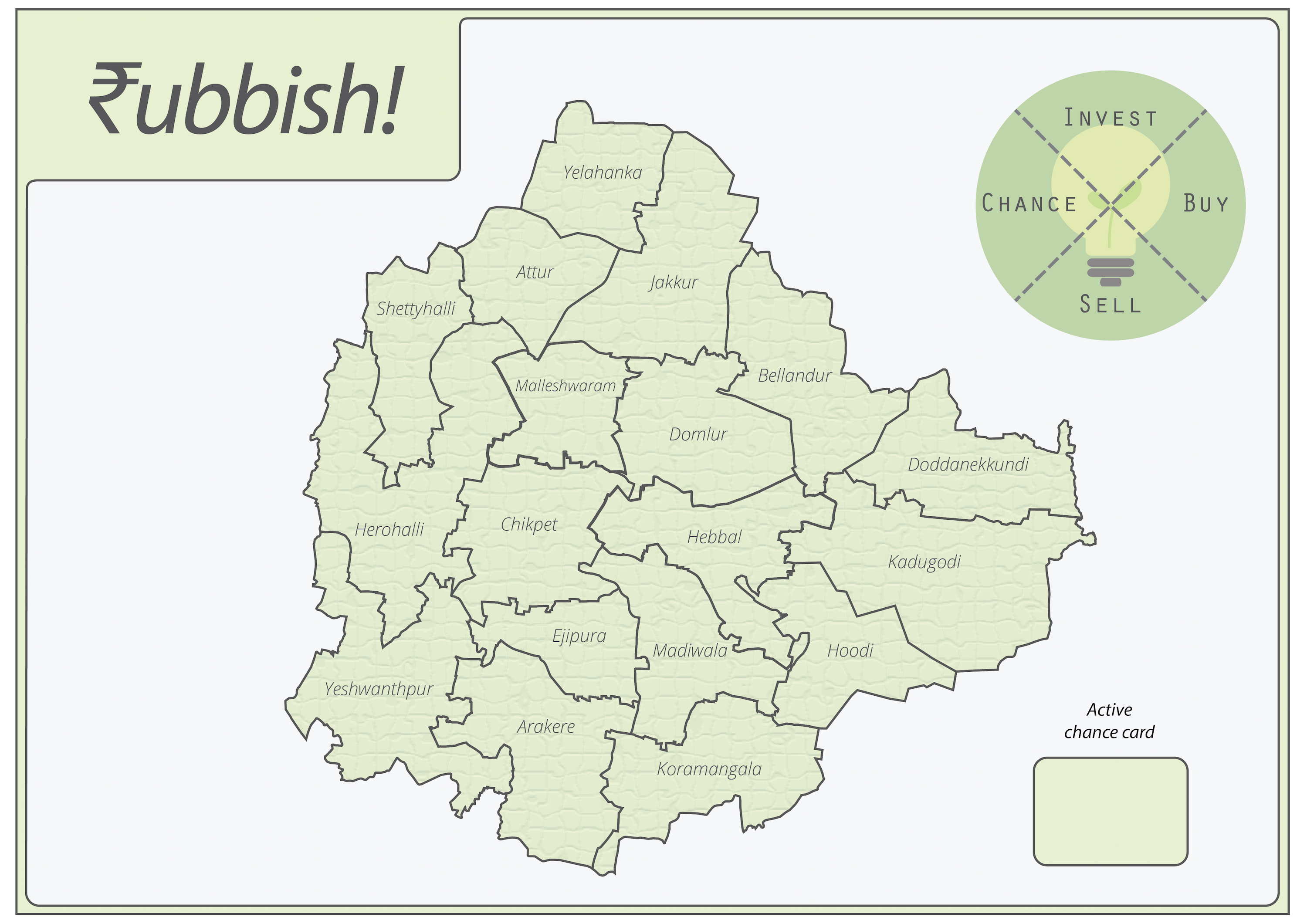Games for Cities
₹ubbish! (2015)
Amsterdam [NL] &
Bangalore [IN]
Developed by:
A bi-lingual board game that addresses the environmental and economic considerations at play in Bangalore’s waste crisis.

As urban populations continue to grow at staggering rates, waste disposal is becoming a crucial { } for cities, especially in the developing world where infrastructures are often [old] or lacking completely. The City of Bangalore is one example of a city facing a rather extreme waste crisis. Recently, the city’s main landfill has been closed on court orders and instead a new, decentralized plan for managing waste is being implemented by the municipal bodies of Bangalore. ₹ubbish! was designed to address this problem specifically, and makes the players experience Bangalore’s waste crisis first hand, by dropping them in the middle of this situation.
In ₹ubbish! players adopt the role of John, a Dry Waste Collection Centre (DWCC) manager. The players’ responsibilities include collection and disposal of dry waste and ensuring the overall cleanliness of the city. Each player runs his own DWCCs, starting with one DWCC in one ward. Every round, waste is generated in all wards, however, the players can only collect the waste that is generated in the wards that have a DWCC. The remaining waste will be dumped in the landfill. When this landfill overflows, all players lose. If the players manage to create a DWCC in every ward, they all win the game.
Designed to accompany and support the implementation of the new, decentralised plan, ₹ubbish! is particularly effective in getting local citizens to consider the importance of their role in addressing Bangalore’s waste crisis. The simple and low-cost format makes it easy to replicate and use across a wide range of settings. The design team notes that the game is particularly well-suited to kick-starting informative and productive discussions between citizens, the municipality, and the relevant waste-management authorities.

